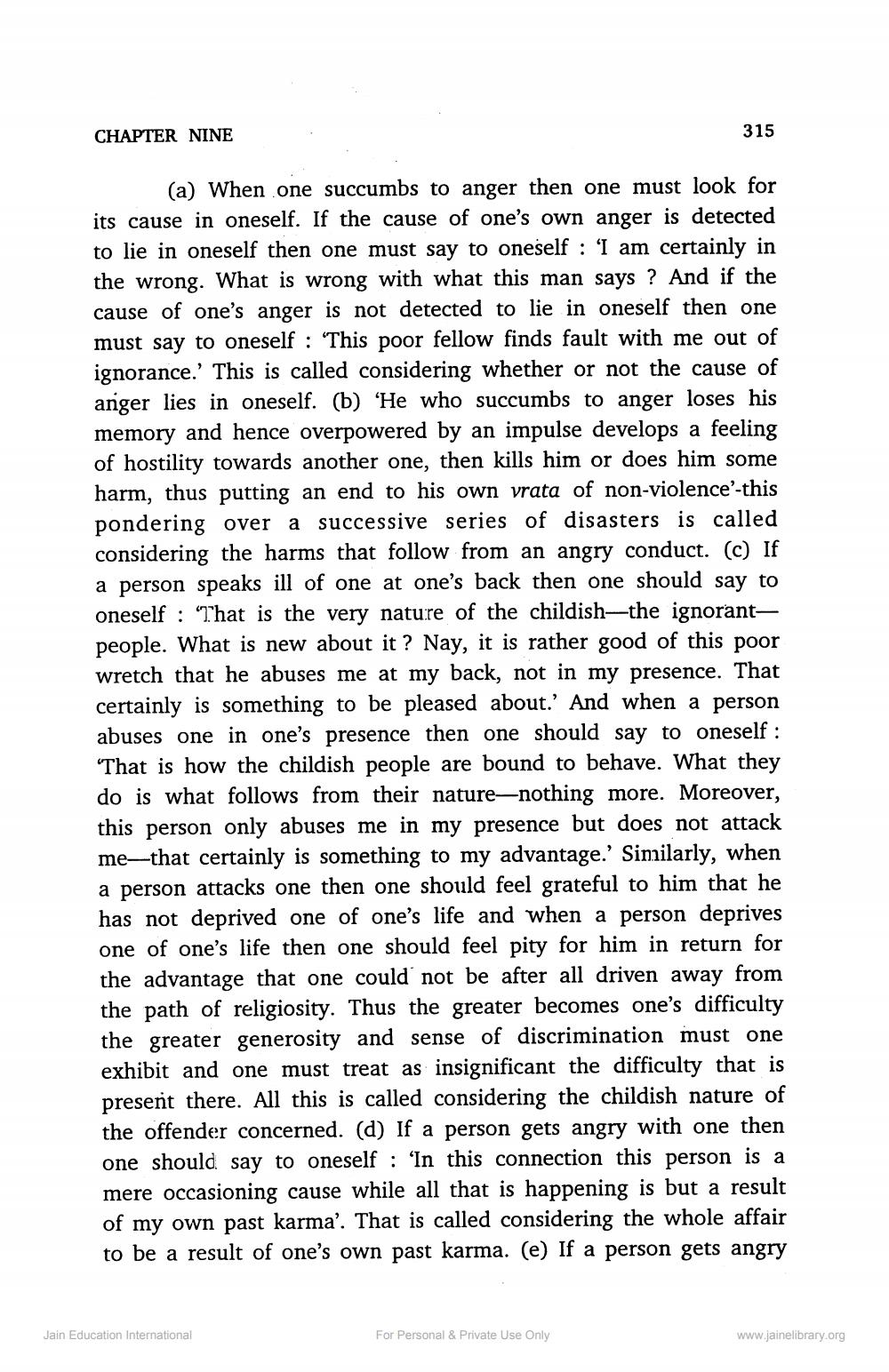________________
CHAPTER NINE
315
(a) When one succumbs to anger then one must look for its cause in oneself. If the cause of one's own anger is detected to lie in oneself then one must say to oneself : 'I am certainly in the wrong. What is wrong with what this man says ? And if the cause of one's anger is not detected to lie in oneself then one must say to oneself : This poor fellow finds fault with me out of ignorance. This is called considering whether or not the cause of anger lies in oneself. (b) 'He who succumbs to anger loses his memory and hence overpowered by an impulse develops a feeling of hostility towards another one, then kills him or does him some harm, thus putting an end to his own vrata of non-violence'-this pondering over a successive series of disasters is called considering the harms that follow from an angry conduct. (c) If a person speaks ill of one at one's back then one should say to oneself : That is the very nature of the childish—the ignorantpeople. What is new about it? Nay, it is rather good of this poor wretch that he abuses me at my back, not in my presence. That certainly is something to be pleased about.' And when a person abuses one in one's presence then one should say to oneself : That is how the childish people are bound to behave. What they do is what follows from their nature—nothing more. Moreover, this person only abuses me in my presence but does not attack me—that certainly is something to my advantage.' Similarly, when a person attacks one then one should feel grateful to him that he has not deprived one of one's life and when a person deprives one of one's life then one should feel pity for him in return for the advantage that one could not be after all driven away from the path of religiosity. Thus the greater becomes one's difficulty the greater generosity and sense of discrimination must one exhibit and one must treat as insignificant the difficulty that is present there. All this is called considering the childish nature of the offender concerned. (d) If a person gets angry with one then one should say to oneself : 'In this connection this person is a mere occasioning cause while all that is happening is but a result of my own past karma'. That is called considering the whole affair to be a result of one's own past karma. (e) If a person gets angry
Jain Education International
For Personal & Private Use Only
www.jainelibrary.org




